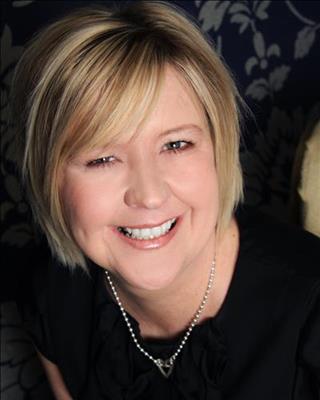
Janice,
NHS Lanarkshire is committed to every person living in Lanarkshire having access to the right healthcare, in the right place, at the right time.
As part of a Scotland wide transformation of Primary Care services, NHS Lanarkshire is testing out new ways of working which bring a range of health professionals into GP practices to provide additional care to patients.
We believe this is the right thing to do because it means that patients can get the care and advice they need from the most appropriate professional(s) in their own local area, without waiting to be referred on. It also means that GPs and other health professionals are talking to each other regularly which helps GPs to be more aware of what is happening with their patients and care for them accordingly.
Occupational therapists are one of the health professions who have been working in GP practices as part of this transformation.
Occupational therapists help people when changes to health and wellbeing affect their ability to carry out day-to-day activities or ‘occupations.’ This could include activities you do to care for yourself or others, tasks you do at work or hobbies and social activities you do in spare time.
Occupational therapists work with patients to understand which activities and roles are most important to them, identify the barriers to doing these important activities and provide solutions which help patients to overcome or manage the difficulties they are experiencing.
Occupational therapists typically work in hospitals, in community-based teams, in rehabilitation services and in Social Work teams but we wanted to find out how we could work more closely with GPs to support Lanarkshire people.
Since November 2017, two occupational therapists have been working in one GP practice in North Lanarkshire (the MacInnes practice in Newarthill) and one in South Lanarkshire (the Burnbank practice in Hamilton).
Lisa Greer & Shonaid McCabe, Occupational Therapy Advanced Practitioners
We take referrals from GPs, practice nurses and pharmacists as well as accepting self-referrals directly from patients. We see anyone aged 16+ whose health is affecting their ability to perform everyday tasks or access the places they need to go to do those tasks. We speak to patients on the phone within three working days of referral and see those who need assessment within one week.
We can help in many ways. For example we can provide equipment to make it easier for someone to carry out self-care tasks at home and provide support/advice to their carers; we can teach someone with a long-term condition self-management skills which enable them to manage the roles they prioritise alongside rest and leisure activities ; we can support someone who struggles to access community resources due to anxiety or poor mobility to get out and about; we can recommend changes to the workplace or job role and provide information to employers to help someone remain at or return to work; or we can enable people to link into health, social care and community services through signposting or referral.
We can demonstrate that patients’ wellbeing has improved and that their ability and satisfaction in prioritised activities is enhanced. We have asked the patients we have worked with, what they think about the service we are offering. The response has been overwhelmingly positive. People have reported the following benefits:
- They feel more independent in their own homes
- They can cope better with stress and anxiety
- They are engaging with activities and groups in their local area
- They socialise with friends and family more often
- They have been connected with services and third sector support they did not previously know about which is meeting their needs
- They have been provided with equipment to help improve their capacity in relation to activities of daily living
This is good news! We understand that when people can do the things that are important to them in day-to-day life, they generally feel happier, cope better, need less healthcare and recover more quickly from ill health.
Our next step is work with our health and social care colleagues to ensure that people across Lanarkshire have early access to occupational therapy and other healthcare professionals in their local area by developing multidisciplinary teams which work alongside GP practices.
Further advice about NHS Lanarkshire’s Occupational Therapy services can be accessed via www.nhslanarkshire.org, or by contacting Janice McClymont, Head of Occupational Therapy Profession on 01698 366435.
If you have an experience of the Occupational Therapy Service you would like to share, please speak to a member of staff, respond on Patient Opinion, or visit the “Your Feedback” Section of the NHS Lanarkshire website to see the other ways to get in touch www.nhslanarkshire.org
Occupational Therapy in General Practice
Occupational Therapy in General Practice https://www.careopinion.org.uk/resources/blog-resources/23-images/6d7fccbc6b0a4e1ba88766e3b7822ad3.png Care Opinion 0114 281 6256 https://www.careopinion.org.uk /content/uk/logos/co-header-logo-2020-default.pngUpdate from NHS Lanarkshire
Posted by Janice McClymont, Occupational Therapy Head of Profession, University Hospital Wishaw, NHS Lanarkshire, on
About: NHS Lanarkshire
Thanks for your feedback.

